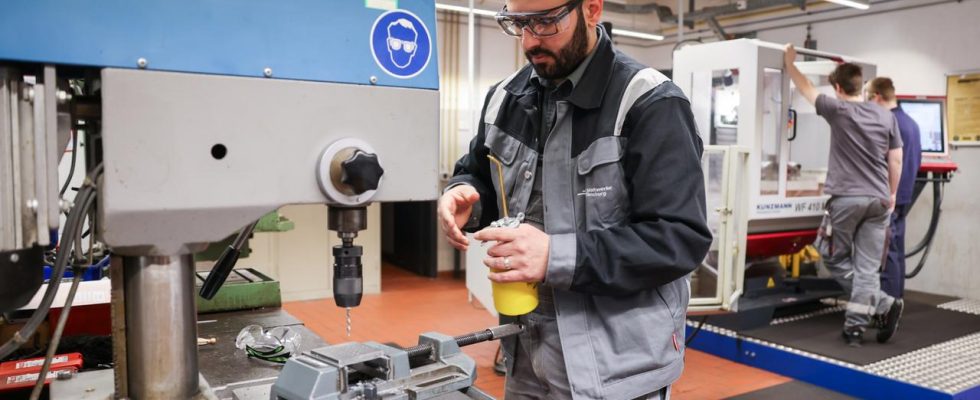The Institute for Labor Market and Occupational Research examined the employment rate of refugees. The result: the employment rate in Germany also increases over time. There are differences between men and women.
The longer refugees live in Germany, the more likely they are to have a job. This shows a new one Study by the Institute for Labor Market and Occupational Research (IAB) in Nuremberg. Accordingly, the employment rate of migrants with a refugee history increases with the length of their stay in the Federal Republic.
Seven years after their arrival, 63 percent of the refugees surveyed in the study were employed. Eight years after the move, the figure is already 68 percent. The study refers to refugees who came to Germany between 2013 and 2019.
More men than women in work
According to the study, there is a significant difference in employment between women and men: seven years later, 31 percent of the refugee women who moved here in 2015 were employed, and 75 percent of men were employed.
According to the study, the low employment rate among refugee women cannot be attributed to conservative values. More important causes are the distribution of care work, such as children who need to be looked after, as well as additional qualifications that refugee women still have to acquire. IAB research department head Herbert Brücker explained: “The women want to work.”
Duration of stay influenced Quality of employment
According to the findings of labor market researchers, not only did the employment rate increase with increasing length of stay, but the quality of employment also improved. 76 percent of the employed refugees who came to Germany in 2015 had full-time jobs.
The average gross monthly earnings for this comparison group – those who arrived in 2015 – were 2,570 euros, and for all employed refugees it was 2,250 euros. With longer stays, refugees also earned more money.
Politics is crucial for Labor market integration
“The institutional and political framework conditions are crucial for labor market integration,” explained Brücker. The acceleration of asylum procedures and the gradual reduction of the periods for employment bans are accompanied by an increase in the employment rates of refugees.
The results also showed that residency requirements affect employment and that accommodation in reception centers has a particularly strong negative association with labor market integration. Men who live in such shared accommodation are five percentage points less likely to be employed and women are three percentage points less likely.
IAB research department head Yuliya Kosyakova added that women in particular benefit from integration and language courses. “The labor market and career advice provided by job centers and employment agencies also has a positive connection with employment rates. An earlier start to these measures could accelerate the labor market integration of refugees.”

